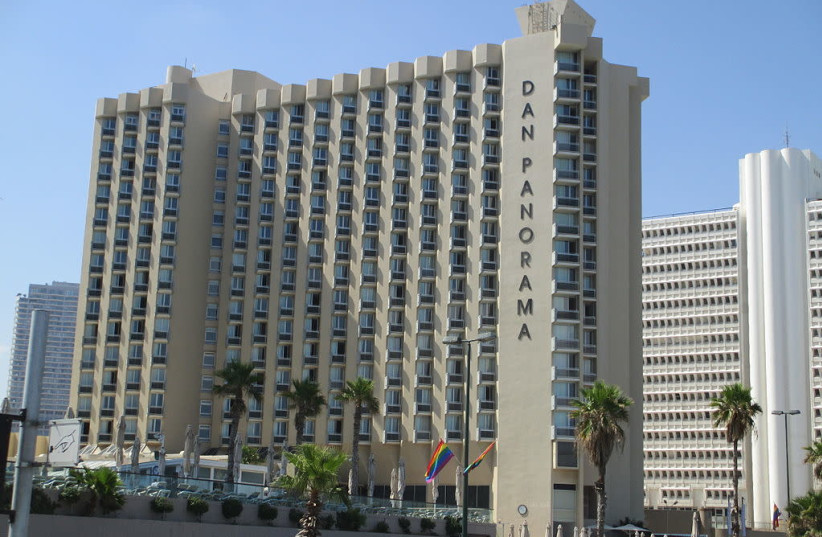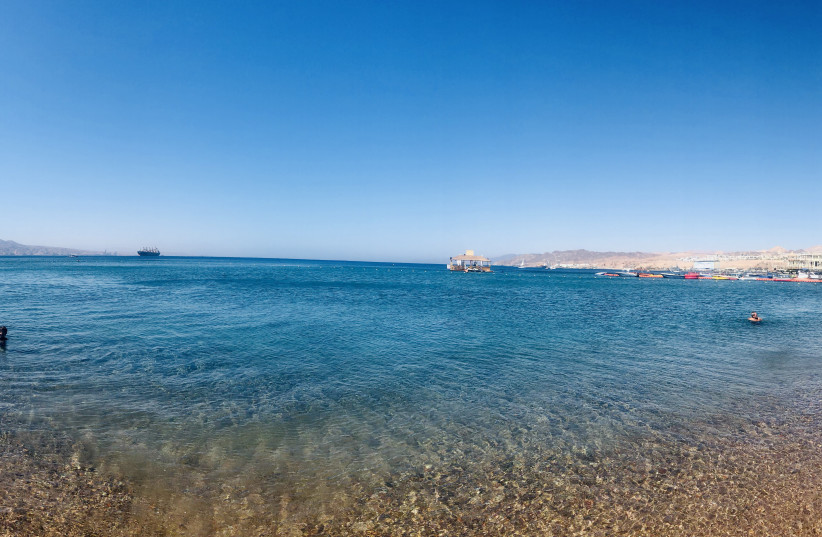Recently, I returned from a short educational tour of Jordan to explore an enigma that had troubled me for many years. What do beachfront hotels look like on the Dead Sea in our neighboring country? Unlike Israel, where hotels are located on the southwest shore in front of the evaporating salt pools, Jordan’s hotel complex is located on the northeast shore.
The differences are enormous. What struck me was that while in Israel, all international hotels had vanished, in Jordan all the hotels are crowned with the global familiar trademarks; Hilton, Marriott, Holiday Inn, Mövenpick, Kempinski and others are all there.
How come the land of the bible, the Holy Land and the leading start-up nation of the middle east is having difficulties attracting hotel brands that dominate global tourism? Names like Hyatt, Hilton, Sheraton and Crowne Plaza have disappeared from Jerusalem. Radisson, Sheraton, Hyatt, Le Meridien, Golden Tulip and Crowne Plaza have disappeared from the Dead Sea. Hilton, Sheraton, Meridian and Crowne Plaza have all vanished from Eilat.
Instead, Israeli brands are blossoming – Dan, Isrotel, Fattal with the Leonardo brand, Prima, Atlas, Brown, Herbert Samuel and Africa Israel with their Vert.

Are we facing an evaporation of global hotel brands from our country?
Famed hotel trademarks appearing on a city skyline are not just an opportunity for hotel companies to capture the trust and attention of their target audience. It also reflects the destination’s image, as a desirable place for travelers from all around the globe.
This puzzling enigma has a rather complicated explanation. First, it’s important to understand that in most cases, international brands do not own hotels. They manage them or grant businesspeople and developers a license to franchise the building or to lease it. The global chains are reputed for their professional standards, mega marketing capabilities and their enormous loyalty programs which attract hundreds of millions of members, mostly American.
THESE MAGICAL platforms come with a price – a significant share of the revenue. Israeli developers are skeptical. Doubts, ambiguity and uncertainty dominate any negotiations.
Guy Klaiman is the most experienced hotel General Manager in Israel, working with three different global brands. Hilton’s Waldorf Astoria Jerusalem, Marriott’s Ritz Carlton Herzliya and now the David Kempinski Tel Aviv.
”Israeli hotel developers are interested in lease contracts to feel secure, while the global hotel chains are willing to either manage the hotel or to franchise it”, he explains. “Israeli brands are much more positive for such leasing collaborations, as they overshadow the local market and feel confident to attract potential clients. They are also eager to expand with more and more properties.
“In addition Israeli developers are suspicious toward the global brands as they make a point to follow their uncompromising brand standards, which obviously cost a lot of money”, he says.
“Furthermore, Jerusalem is more of a pilgrimage market and less a luxury destination. Eilat lost its upmarket sunshine positioning among Europe travelers. The Dead Sea is not attractive to the German market anymore as insurance policies for medical tourism are much more strict nowadays. No wonder the global brands are not to be found there anymore.”
Henry Taic is Israel’s foremost hotel developer. He owns leading hotels, mainly in Tel Aviv, including the David Intercontinental and the David Kempinski. He is also the majority owner of the Hilton. From his Tel Aviv office balcony he shows me the first stages of his next monumental project – the LXR and Curio hotels, built south of Independence Park.
Taic is not the typical Israeli developer. He was born in Europe and made Israel his home when he was an adult. His explanation of the mindset of Israeli developers is even more fascinating.
“There is a significant mentality difference once Israeli hospitality entrepreneurs negotiate. The culture is different. It begins with a level of trust and feeling comfortable to do business with Israeli partners and to sign a contract in Hebrew. Signing one in English is more intimidating.
“While Israelis are more flexible with the agreements, the global brands are much more strict and stick to their legal procedures with little compromising״, says Henry Taic. ״Israeli brands have more experience how to overcome the hurdles that begin with the uncertainty of the changing political and security environment here.
“They break through the fences of local bureaucracy for permits and licenses to get their hotels on their way as soon as possible. International brands find it more difficult to understand the Israeli reality and the business environment. Global brands penetrate easier into Israel in two paths. Either the investor has a life dream he wishes to materialize. Or, if the investors are foreigners. These businessmen feel comfortable with the global brands, as far as similar language and trust”, he says.

INDEED TEL AVIV is booming with foreign investors and recognized brands for future hotels. The Mandarin Oriental next to the Old Dolfinarium, Nobu on Rothschild Boulevard, or the Swissôtel Bat Yam Tel Aviv are all relevant examples.
Ron Yariv is a reputable leading experienced hotel adviser to developers. He believes there is a way of bringing the global brands back. “The business model should change. Only a sharing model of profit might work in Israel. If the brands believe they can generate more business better than a local hotel, they should reflect it in the agreement with the developers themselves. Flexibility is needed to change the future here”, he says.
Here comes the chicken or the egg dilemma for both international chains and developers. Brands are more flexible with agreements if they are convinced the business partnership is promising. Locations with high demand like Tel Aviv lead to quick partnerships. But other parts of Israel, including the capital, are questionable. The risk is high and both the brands and the entrepreneurs prefer not to embark on joint ventures. This country is losing the brands’ presence. Who will come forward and take risks?
“Israel’s future is definitely with international brands with unique value propositions. I am confident that Israeli developers will be willing to invest with them, not only in Tel Aviv. A brand with a unique know-how, with unique stories and propositions, particularly wellness programs will succeed”, says Yariv.
The luxurious resort Six Senses Shaharut in the Negev might be this unique example. The person behind the construction of the relatively new hotel is Israeli developer Ronny Douek. His vision was to establish a resort in a strategic location on the ancient Nabataean spice route. He is surely the dreamer materializing his dream.
Douek initiated a collaboration with Six Senses Resorts & Spas, a relatively young brand that declares a commitment to community, sustainability, emotional hospitality, wellness and design, infused with a touch of quirkiness.
Indeed the Six Senses global brand representation south of Jerusalem is a fresh approach. The hotel attracted global attention through a brilliant marketing campaign. The collaboration is promising, and if this partnership endures and additional young and vibrant global brands follow, it will be a promising turning point. This “Shaharut index” is intriguing and extremely important to Israel’s forthcoming tourism for decades.
The future with global brands might be bright for the hospitality industry here after all.
The writer is the Travel Flash Tips publisher.
